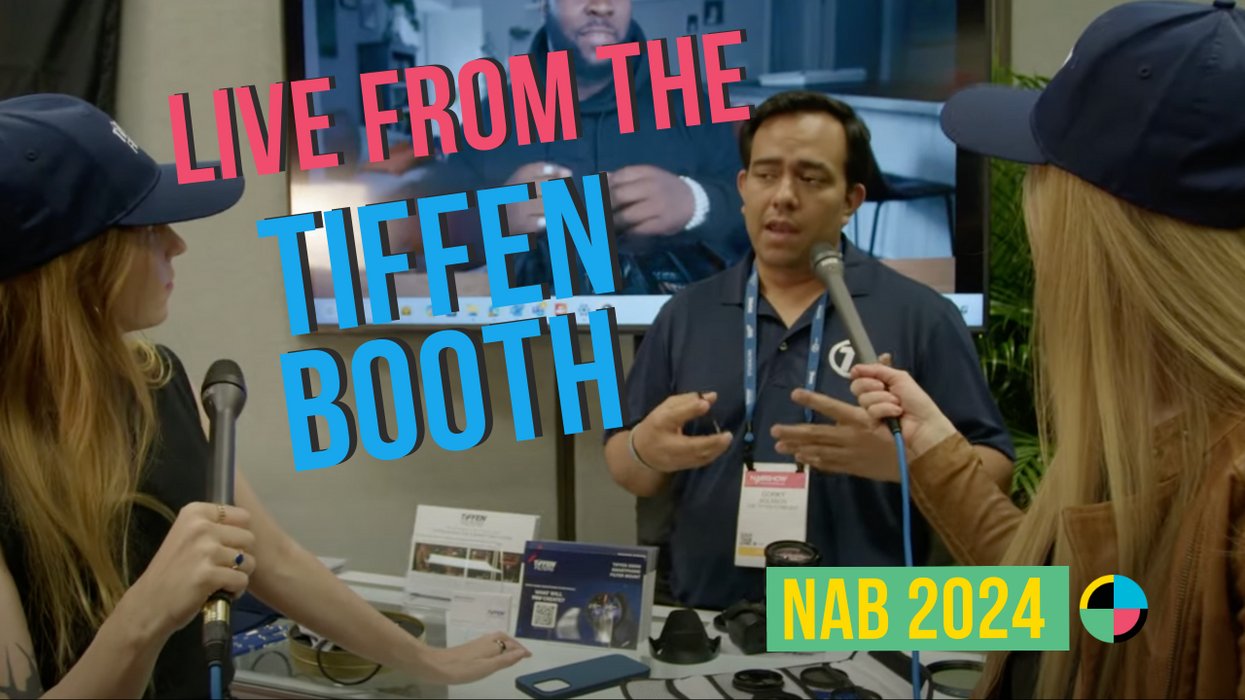How to Raise Money to Make a Film with International Pre-Sales
You wrote the script. You budgeted the production. You storyboarded your shots. All you need now is the money to get your movie made. Where does it come from?

If the lede interested you, first of all, you’re probably making an independent film. An independent film is any film that isn’t made by one of the major studios: Disney, Fox, Universal, Sony, Paramount, or Warner Brothers. This means that most films fall into the “independent” category.
So where do they get their money?
A sales agent is a company that will sell the distribution rights to your movie. They usually have strong relationships with foreign distributors and enough experience selling that they can give you an estimate of your expected foreign sales revenue.
How to Raise Money to Make a Film
There are four main ways that independent films find the money to get their film made:
1. Tax incentives. (Find out where all the best incentives are here)
2. Debt (aka loans).
3. Equity (aka cold hard cash).
4. Pre-sales.
Most independent films use some combination of these four elements. They’re all worth discussing, but for today, let’s focus on pre-sales.
There are a few concepts to understand before we dive into an example.
What’s a Sales Agent?
A sales agent is a company that will sell the distribution rights to your movie. They usually have strong relationships with foreign distributors and enough experience selling that they can give you an estimate of your expected foreign sales revenue.*
What’s an independent distributor? An independent distributor is a company that licenses (commonly referred to as “buying,” even though it’s more of a rental) the rights to a movie or piece of content. A24 is an example of an independent distributor in the US. Other countries have their own companies similar to A24, and they all need movies to distribute. Note that major studios are not independent.
How a Movie Raises Money In the Pre-Sales Market
We're going to walk through this process with a theoretical project to better understand how it all works.
Let’s say you’re a producer and you have a dynamite script that you’ve budgeted at $35m. It’s ready to get made into a movie.
You’re going to call up one of your contacts at a talent agency and say “Hey, I have this awesome project. I think it would be great for actors X, Y, or Z (all of whom are repped by the agency). We can pay them $xxxxxx. Do you think you could package it with one of them?”
The agent you called will talk to his buddy in the Film Finance department, and they’ll run some rough financial estimates to see if they think your project can make money. Then they’ll try to attach one of the actors you suggested, with the understanding that you won’t just pay the actor, but that you will also pay the agency a packaging fee. This is usually some percentage of the budget (packaging fees are bullshit, but what are you gonna do?).
Now you have a script, an actor, and a budget!
Ok, you picked a sales agent. They said they could get you $10m in pre-sales to help get your movie made. What happens next?
It’s time to pick a foreign sales agent to help get your movie made. The best foreign sales agents have a reputation for delivering high-quality projects consistently, without last-minute changes or cuts. They have great relationships with foreign buyers and often have output deals in place (they sell all of their projects exclusively to a certain buyer for a percentage of the budget).
Different companies will give you different estimates for how much money they can get for your project.
Ok, you picked a sales agent. They said they could get you $10m in pre-sales to help get your movie made. What happens next?
Now they have to go out and sell your movie. There are three major markets where this usually happens: Cannes, which takes place in southern France during the middle of May; the American Film Market, which takes place in Santa Monica during early November, and the European Film Market, which takes place in Berlin during early February. There are other times and places to buy and sell movies, but most distributors consider these the big three.
About two to three weeks before a market, each sales agent compiles their slate and sends out a list of their available projects to all the distributors they know. This includes details about the project, the price for each specific territory, and the script.
Distributors then have limited time to evaluate these projects before the dealmaking frenzy. With 50+ sales agents each bringing three-to-six projects to a market, that’s a lot of material to grind through (side note: grinding through all those scripts and packages is what I do—my job is to represent various distributors who want an experienced analyst to help them find the right movies to buy).
Ok, let’s assume your sales agent has a bunch of offers on your movie. First of all, congratulations! Now comes the hard part: deciding on what to actually do with those offers. Just like in real life, nobody ever gets exactly what they want. If an offer comes in under the asking price, you need to figure out if you can still make your movie with less than the projected revenue from foreign pre-sales.
Why is this important? Because that pre-sales money doesn’t magically appear in your bank account right away. Instead, only about 20% of the sale price is paid up front. You’ll get the rest after you make your movie.
Wait, don’t you need that money in order to make your movie? How can you make your movie if you don’t have that money? It's kind of like that Catch-22 the characters in Boogie Nights found themselves in once...
So what happens now?
Banks to the rescue! If you’ve signed a deal with a reputable distributor for $xxxxxxx, then you can borrow against that and get your money. You won’t get all of it—after all, bankers have to eat too—but you’ll get enough that you can reliably funnel it into your production budget. Remember that $10m the sales agent estimated? Maybe you’ll get $8m of that for you to make your movie.
By now, you’re probably asking yourself the million-dollar question:
How Do I Get a Distributor to Pick My Movie at the Market?
I can’t speak for all distributors, but I can tell you what I look for in a project:
The script has to be awesome.
With the amount of content that’s out there, independent distributors can’t just be content to sit back and throw something on the screen. Whatever they buy has to be able to cut through the clutter, and that means an incredible story capable of convincing people to get out of their house and buy a movie ticket.
This also pertains to genre; independent films simply cannot compete with a $200m Marvel movie and the best ones don’t even try. I’d rather take a shot on a Moonlight or a La La Land than another Taken clone. That’s because, in addition to the quality of the project…
The overpriced film is them trying to justify their estimates. At the end of the day, distributors need to make money, and they can’t do that if they’ve paid too much for their product.
The Price Must Be Right
Sometimes I’ll see a project that looks appealing, but it’s way too expensive for my clients. This usually happens with less experienced sales agents who don’t know the market that well, and they’ve promised their producers way too much money in foreign sales.
The overpriced film is them trying to justify their estimates. At the end of the day, distributors need to make money, and they can’t do that if they’ve paid too much for their product.
Does it have, or is it likely to have, U.S. distribution? The fact remains that U.S. distribution is still the primary driver of overseas revenue for many independent films. It also guarantees a certain degree of marketing power. No theatrical distributor wants their film to go unseen, so they’ll spend the money to get butts in seats.
Wrapping Up How to Raise Money to Make a Film With International Pre-sales
This has hopefully shed some light on the inner workings of the international pre-sales space. Although it’s not what it used to be in the 1980s and 1990s, when films could presell 120% of their budget and be profitable before they ever got made, it’s still a significant chunk of financing for a lot of independent films.
Picking a reputable and experienced foreign sales agent is important for your film, so it’s worth the time to do your research. And if you do decide to go the international pre-sales route for your film, I recommend making that decision early so you can start building your project with pre-sales in mind.
As always, the entertainment industry is changing in new and unexpected ways, so this is by no means a definitive guide.
Now get out there and make your movie!
*There are a couple important things to remember: first of all, sales agents always inflate these estimates to encourage you to pick their company. Second, the international market isn’t that big. All these companies deal with the same set of buyers – so you have to ask yourself, why is Company A estimating $10m in presales while Company B is estimating $7m? They’re selling to the same people!
Editor’s note: Evan also runs a script consulting company called GetMade, where he helps people make their scripts better. Here’s an interview we did with him a few weeks ago: https://nofilmschool.com/2018/10/what-script-consultant-and-do-i-need-one
If you liked this article, check out GetMade’s website at www.getmade.net. You can also follow GetMade on social media for daily #ScriptTips, the occasional screenwriting meme, and answers to questions you might want to ask.
Twitter: @GoGetMade
Instagram: @go.get.made
Facebook: www.facebook.com/GoGetMade












